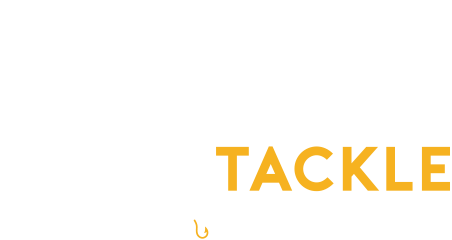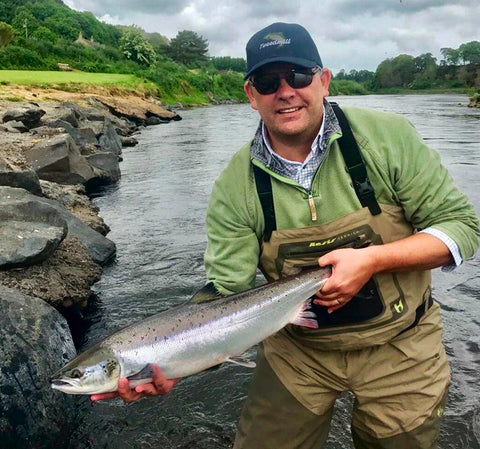
Fly Fishing vs. Regular Fishing. Everything you need to know
What is the difference between fly fishing and regular fishing? It can all be a little confusing when getting started. Fret not. Today we are running you through the full breakdown to help you better understand. But first, let’s kick off with what you might mean when referring to ‘regular’ fishing.
What is regular fishing?
Here in the UK, regular fishing typically refers to coarse fishing. Coarse fishing is the process of angling for rough fish species deemed undesirable as food or to fish for sport (game fishing). Coarse fishing is massive across Europe and other Commonwealth countries. Regular fishing in the United States is more likely to mean spin fishing. For this article, we will look at this from the UK perspective and run through a comparison of Fly vs Coarse fishing.
Brief definitions
Coarse fishing is the process of angling for rough fish species. Rough fish are deemed to not be good enough to eat, nor is there much desirability to fish for them for sport. Coarse fish tend to be caught by bait, using bait fishing techniques.
Fly fishing is a technique that uses an artificial fly to catch a freshwater game fish. It is the most common technique used for Trout or Salmon.
This begs the question, can you catch coarse fish on a fly line? You can! There are many videos online showing anglers doing just that. Whether it’s the most efficient way of doing so is up for debate, but it is certainly possible.
Popularity
A survey of freshwater angling showcased the immense popularity of fishing when it discovered that 22.5 million days in a single year were spent freshwater angling. The vast majority of this was coarse fishing. In fact, most fish caught here in Britain would be classed as coarse fish. On the other hand, fly fishing makes up just 10% of the overall fishing here in the UK, making it a far more niche discipline.
Fish
Coarse fish are any fish living in freshwater that is not part of the salmonids family. Coarse fishing tends to catch fish such as carp, catfish, pike, perch, roach, etc. Fly fishing is also for freshwater but is overwhelmingly for trout, with salmon making up the rest.
Fly fishing species
- Trout
- Salmon
- Grayling
Coarse fishing species
- Bream
- Barbel
- Common Carp
- Pike
- Stickleback
- Gudgeon
- Ruffe
- Chub
- Dace
- Perch
- Minnow
- Roach
- Rudd
- Wels Catfish
- Tench
- Bullhead
- Gwyniad
Waters
Both fly fishing and coarse fishing tends to be for freshwater species. Therefore, both coarse and fly fishing tends to take place in the river and lakes.
The Equipment
| Differences | Fly Fishing | Coarse Fishing |
|---|---|---|
| Rod Type | Fly Rod | Spinning & Bait fishing Rod |
| Bait | Artificial Flies | Pellets, sweetcorn, worms, maggots, casters |
| Reel | Fly Reel | Spinning Reel |
| Reel Line | Fly line | Monofilament & braid lines |
| Storage and Luggage | Waist coasts, bags | Seat Box |
The Cost
On average Anglers spend over £400 on tackle and an additional £110 on club or syndicate fees per year here in the UK. That said the cost of fishing really depends, you can do it relatively cheaply, and you can spend a fortune. Things to consider are the cost of equipment and cost of memberships and clubs, as well as fuel to get to your preferred locations. Ultimately, you should be looking for the best value over just the cheapest. When fishing for carp for example, you need far more equipment. However, on average fly fishing requires less gear than carp or coarse fishing and therefore could cost you less.
Rewarding
Of course this one is a little more subjective and what you prefer is entirely up to you. Both coarse and fly fishing are extremely enjoyable sports. As fly fishing is considered to be more challenging and has a steeper learning curve many would argue it’s more enjoyable.
The goal
The goal of a fisherman may seem obvious, to catch a fish. Although that is true, it is a little too simplified.
For regular fishing, the angler’s aim is to catch as large a number of fish in one sitting. The more the merrier if you will. Spin fishermen are exceptional at this, often catching way more fish than their fly fishing counterparts.
Fly fishing is way more specific with the angler attempting to bluff the fish into believing that the bait is real. Referred to as an artform, a fly fisherman takes pride in the casting and techniques over just the final result.
Summary of differences
| Fly | Coarse |
|---|---|
| More mobile | More Popular in the UK |
| Cheaper to get started | Larger number of fish species |
| Referred to as an art form | Aim to catch as many fish as possible |
Which one is for you?
For all their differences, both forms of fishing are incredibly enjoyable. When it comes to deciding between fly fishing and regular fishing, our best advice is to try both and see which one sparks a passion inside you.


